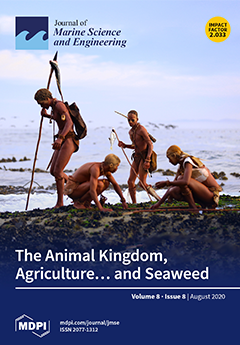This study presents, for the first time, a comprehensive characterization of the surf spots around the Iberian Peninsula and provides surfers and stakeholders an evaluation of the expected surfing days per year on each region and spot. The provision of this climate information
[...] Read more.
This study presents, for the first time, a comprehensive characterization of the surf spots around the Iberian Peninsula and provides surfers and stakeholders an evaluation of the expected surfing days per year on each region and spot. The provision of this climate information can help to decision-making and limit the economic and social damages caused by climate-related disasters. This product aligns with the concept of climate services, increasingly requested to help economic activities to achieve optimal performances. We employ use in our study of two sources of data: meteorological buoys (Redcos, Redex and Costeira) and citizen science data, specifically information mined from surfers reanalyzed, namely the information contained in the Glassy app for smartphones (GAC & GAS). The surf spots are characterized using bottom type, surf break type and optimal wind (
Owd) and optimal swell direction (
Osd). Then, we define a surfing day as the ones in which optimal swell direction and waves bigger than 0.9 m occur; using three parameters mean swell direction (
Dmd), significant wave height (
Hm0) and optimal swell direction for each surf spot (
Osd) and compute the expected frequency of surfing days per year. Once this is done, we attempt to validate the approach taken to characterize a surfing day using buoys parameters (
Hm0,
Hmax,
Tp and
Dmd) and information about actual surf sessions for a small subset of our spots (i.e., Costa Tarragona). Our findings confirm that the area of western shore is the best suited for surfing, with over 300 days/year, followed by northern shore (300, 200 days/year) and southern and southeastern shores (<100 days/year). We expect that these values may modestly contribute to a climate-informed planning and management of the surfing activities.
Full article





